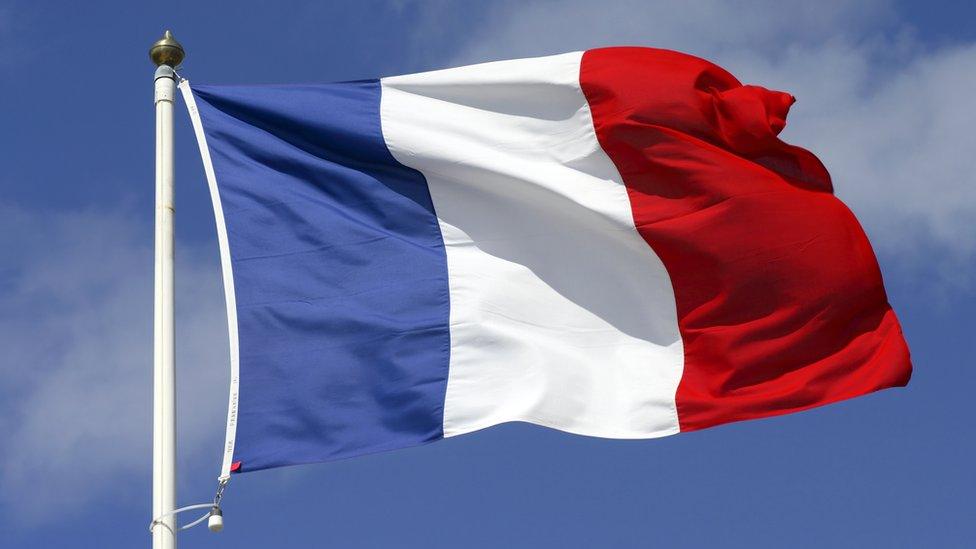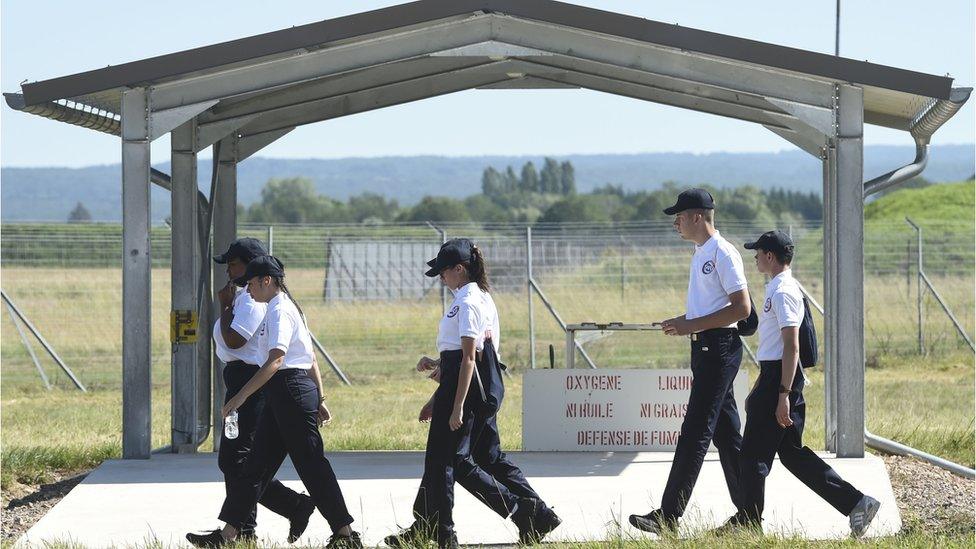Schools in France to display flags in classrooms
- Published

Schools in France are now required to display the French and EU flags in classrooms alongside the words to the national anthem.
The move - effective from the start of the school year on Monday - was approved as part of educational reforms passed by parliament in February.
It was suggested by a centre-right opposition MP but endorsed by President Emmanuel Macron's centrist government.
The new rule has been controversial. Critics say it is overly nationalistic.
All classrooms in primary and secondary schools must now display the national flag, words to the Marseillaise, and the national motto - "Liberté, Égalité, Fraternité".
What is the new education law?
The main changes include compulsory education from the age of three, instead of six as had been the case in France since the 19th Century.
Parent who do not conform with the rules could be fined €1,500 (£1,362). It only affects a small number of families as 97% of children aged between three and six are in education already.
The law also includes changes to the school-leavers exam, giving more weight to coursework and more opportunity for pupils to specialise.
Why is the flag-and-anthem rule being introduced?
It was initially suggested as an amendment by Éric Ciotti, an MP from the centre-right opposition party Les Républicains.
After much debate, the government agreed to the amendment, but insisted the EU flag must be displayed too.
The law was passed by France's parliament in February.
Education Minister Jean-Michel Blanquer told Le Parisien newspaper at the time: "Civic spirit must be strengthened. Everywhere in the world, knowing the symbols of your country is the most natural thing in the world."
Under the old law, schools were only required to have a French flag, external.
What has the response been?
When the amendment was passed, Michel Larive, from left-wing party La France Insoumise, strongly criticised the move. He said having the national flag outside schools was already enough to show "respect for the homeland without veering towards nationalism".
Mr Ciotti said the reforms were "an important step forward" and would "teach pupils to love France from an early age".
Many teachers said the inclusion of the flags was not practical, external. One primary school teacher described the measure as "empty words".
- Published21 April 2019

- Published26 June 2019
